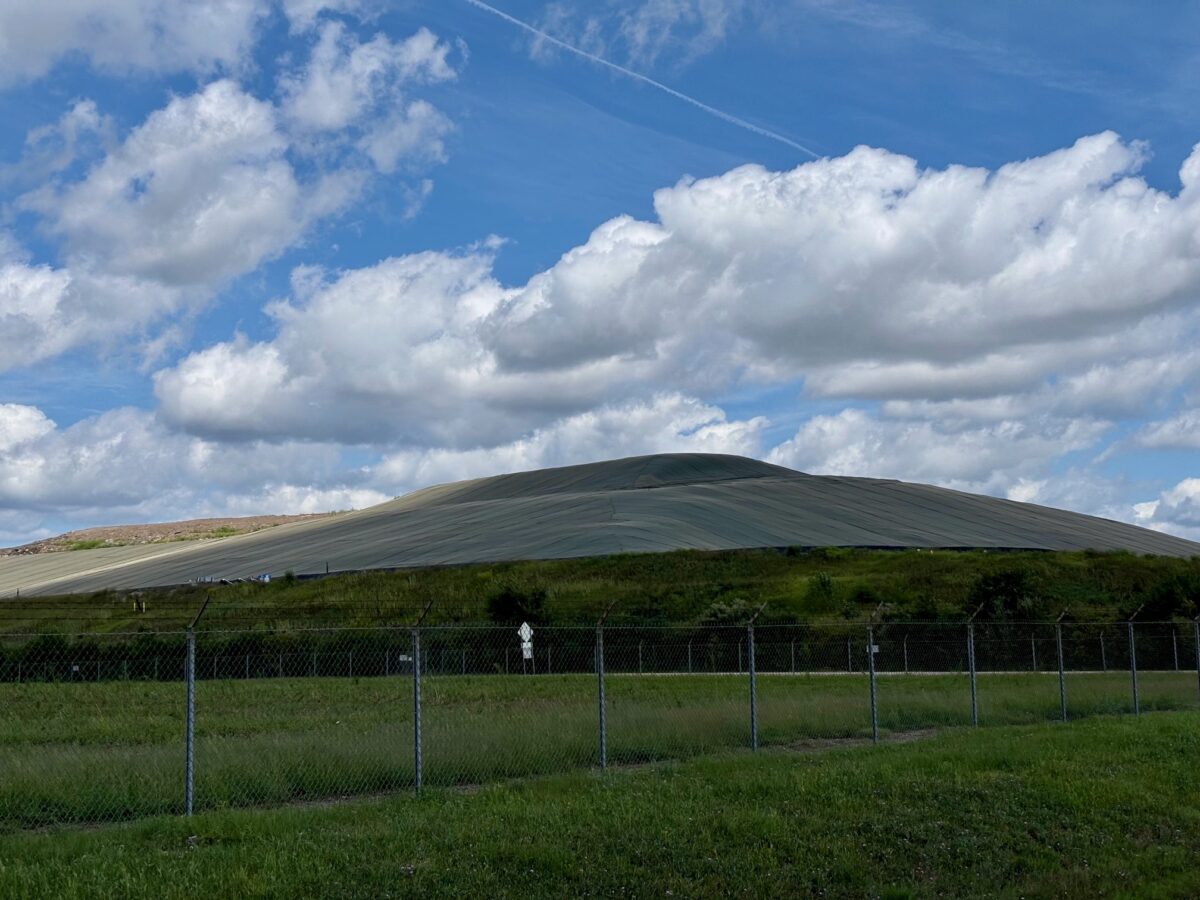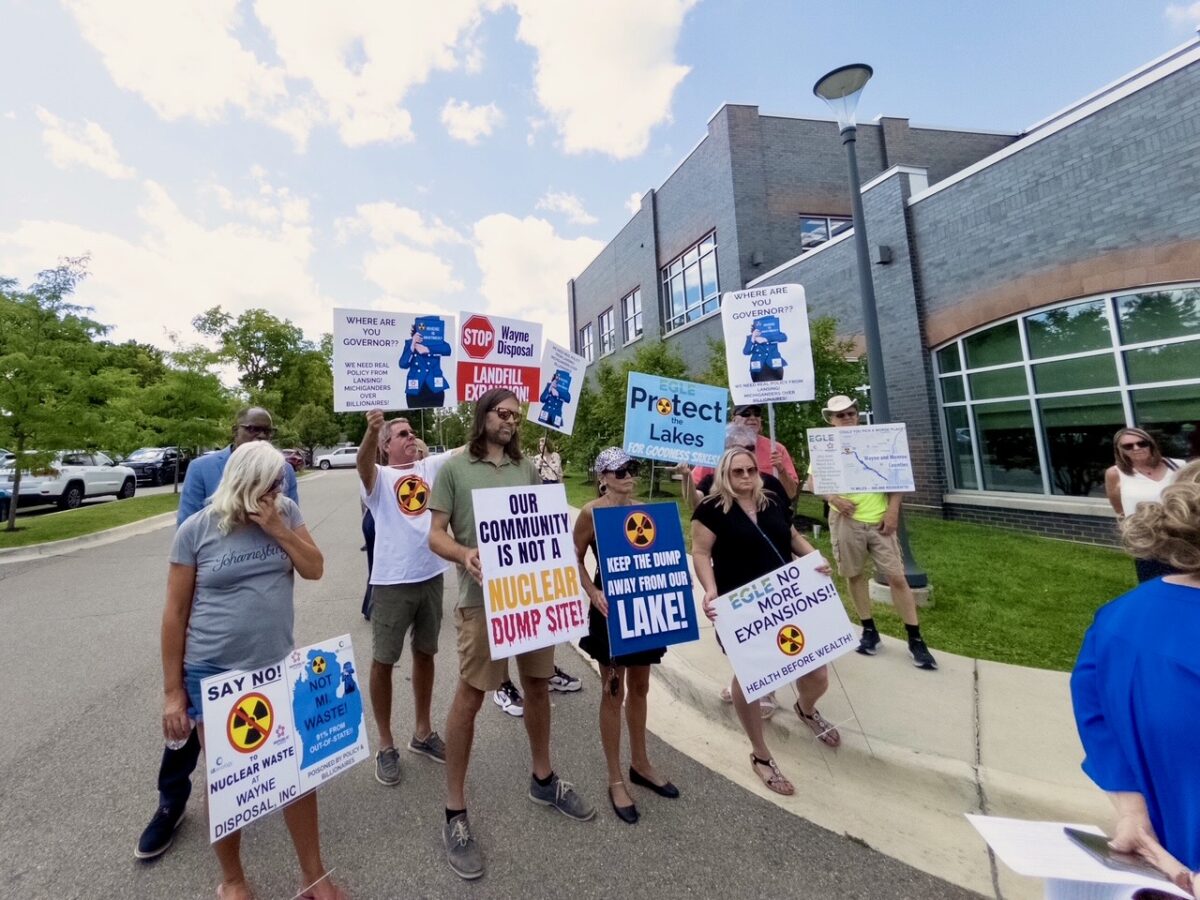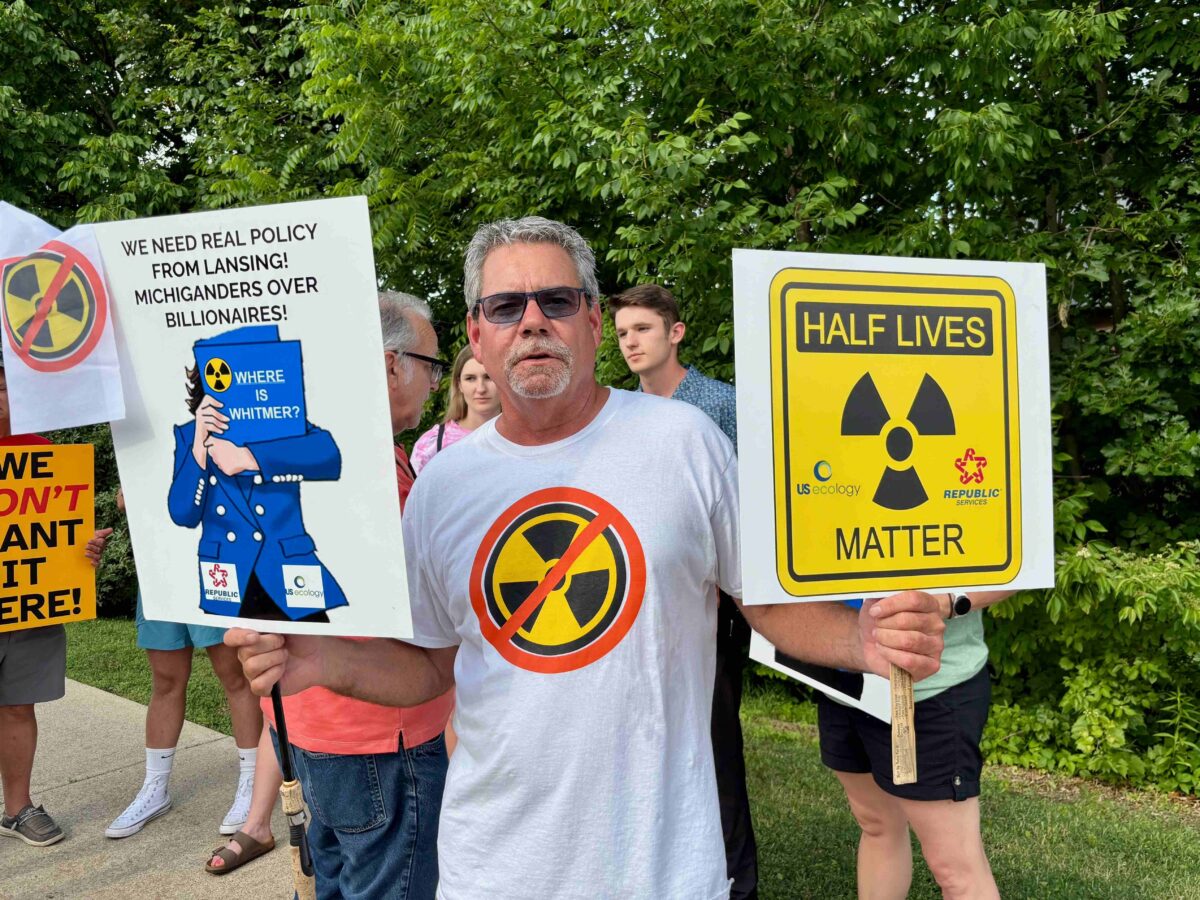Overview:
-The Michigan Senate passes legislation to curtail Michigan’s hazardous waste disposal industry.
-The bills, which now head to the House, would raise disposal fees, ban disposal of some waste and pause approvals for new facilities.
-The political debate comes amid outcry over a southeast Michigan hazwaste landfill’s proposed expansion.
by KELLY HOUSE and SIMON D. SCHUSTER
Bridge Michigan
LANSING — Amid tense debate over a Wayne County landfill’s proposed expansion, the Michigan Senate on Tuesday approved legislation to curtail the state’s hazardous waste industry by raising disposal fees, banning the disposal of some radioactive waste and pausing approvals for new facilities.
Michigan is among the nation’s leading importers of out-of-state waste — including hazardous waste such as PFAS “forever chemicals,” PCBs and radioactive soil — and this is not the first time lawmakers have considered reforms to slow the industry’s expansion.
The two-bill package passed along party lines in the Democrat-controlled Senate and will likely face an uphill battle in the GOP-majority House. The divided legislature has struggled to pass bills this year even with bipartisan support.
Earlier versions of the bills died in last year’s lame-duck session amid a political standoff that ground activity in the Capitol to a halt. Rep. Reggie Miller, D-Van Buren Township, has introduced similar legislation in the House this year.
The reintroduced bill package would place a moratorium on new or expanded hazardous waste treatment, storage and disposal facilities and cap the allowable concentrations of technologically enhanced naturally occurring radioactive material, or TENORM, that can be landfilled in Michigan.
Related:
- Nuclear waste from Manhattan Project headed to southeast Michigan landfill
- Michigan judge halts Manhattan Project radioactive waste from landfill
- Michigan stopped Ohio toxic waste last week, but we import waste every day
The legislation would also raise the low landfill tipping fees and hazardous waste disposal fees that Gov. Gretchen Whitmer has blamed for making Michigan a magnet for out-of-state trash, require more financial assurances from injection well owners and create a new $100 per ton fee for waste sent to injection wells.
Michigan Chamber: hazardous waste facilities ‘an asset to the state’
Republicans decried the fee increases, which would raise rates on nonhazardous landfill dumping from 36 cents per ton to $1.20 per ton and on hazardous waste deposits from $10 per ton or cubic yard to $25, with adjustments to account for inflation every five years thereafter.
While advocates hailed the legislation’s passage as a needed step toward better waste management in Michigan, business lobbyists warned of potential harm to Michigan’s industrial sector, which generates a significant amount of hazardous waste.
Mike Alaimo, legislative and external affairs director for the Michigan Chamber of Commerce, called hazardous waste facilities “an asset to the state and to the business community.”
“We want manufacturers to be competitive, reduce waste and optimize their operational efficiencies, and they’ve been doing that,” Alaimo said. “But at the end of the day, you’re still going to have waste streams.”
East Palestine, Manhattan Project waste trigger complaints
Much of the waste sent to Michigan’s hazardous waste facilities comes from out of state — a reality that irks local officials like Van Buren Township Supervisor Kevin McNamara, whose community is host to a hazardous waste landfill that has repeatedly made headlines for accepting toxic imports.
“Other states have adequately passed laws to restrict that disposal, and it has made Michigan the dumping ground,” McNamara said.
“(The bills) are going to make it so that we can still dispose of Michigan stuff, and will still probably be forced to take in some outside waste, but just not any of the higher-level nuclear bomb waste.”
For decades, Michigan has been a net importer of toxic waste from fracking, contaminated site cleanups and other origins. In 2023, the most recent federal reporting cycle for which records are available, Michigan imported 134,608 tons of hazardous waste — 12,212 tons more than it exported. Most of it came from Ohio and New Jersey.
Furor over the shipments began picking up steam in 2023, when neighbors and lawmakers rallied to stop waste from the East Palestine, Ohio, train derailment that was heading to Wayne Disposal, Inc., a Van Buren Township hazardous waste landfill owned by Republic Services.
Complaints continued building in 2024, as word spread that the US Army Corps of Engineers was sending Manhattan Project waste with elevated levels of radiation to the landfill.
Local governments sued and a judge later halted the shipments of contaminated soil and rubble from Lewiston, New York. A subsequent injunction now blocks similar waste imports from other Army Corps cleanup sites while the lawsuit proceeds.
In total, six sites had been slated to eventually send low-level radioactive waste to the Michigan site, Corps spokesperson Andrew Kornacki told Bridge at the time.
The material, known as TENORM, is made of naturally radioactive materials such as radium or uranium that have been concentrated or exposed because of human activities such as mining.
The Van Buren Township site continues to accept other hazardous waste on a regular basis as it seeks state permission to expand its disposal capacity by 5 million cubic yards, or 23%. Neighboring residents, lawmakers and activists are urging the Michigan Department of Environment, Great Lakes and Energy to reject the proposal.
MORE FROM PLANET DETROIT
Lawmakers urge Whitmer to act on hazardous waste as Wayne Disposal landfill expansion nears approval
Regulators signal approval for Wayne County nuclear and hazardous waste site. Metro Detroit lawmakers say legislation is needed to rein in dumping in the state.
Judge blocks shipment of Manhattan Project radioactive waste to Wayne County landfill
Runoff from Wayne Disposal, if not fully contained and treated onsite, would flow into one or more county drains and drain into Belleville Lake, the Huron River, and Lake Erie, says Wayne County circuit judge.
Belleville hazardous waste expansion proposal met with safety concerns: ‘350,000 residents within 10-mile radius’
Wayne Disposal makes headlines for bringing in Manhattan Project nuclear waste, raising concerns about impacts to waterways and public health.
During Tuesday’s vote on the package, sponsoring Democratic Sen. Darrin Camilleri of Trenton said the bills are “about who we are as a state, what we value and whether we will stand up for our people and our future.”
But after substitute bill language was introduced that would raise tipping fees broadly, Republicans voiced their opposition.
Sen. Joe Bellino, R-Monroe, called the legislation a “233% trash hike” that amounts to a tax increase on Michiganders. But Sen. Jeff Irwin, D-Ann Arbor, countered that the increase was relatively small given the state’s “bizarrely low” fees for dumping trash.
“We continue to leave Michigan open as a dumping ground for our neighbors,” Irwin said, calling the state “the region’s cesspool” given its appeal for nearby states and Canada to offload trash here.
Camilleri argued the proposed increase from 36 cents to $1.20 per ton for regular waste wouldn’t significantly raise the cost for residents’ waste disposal, due to a grant program baked into the legislation that would reimburse municipalities from state funds for any increased cost.
This article first appeared on Bridge Michigan and is republished here under a Creative Commons Attribution-NoDerivatives 4.0 International License.





